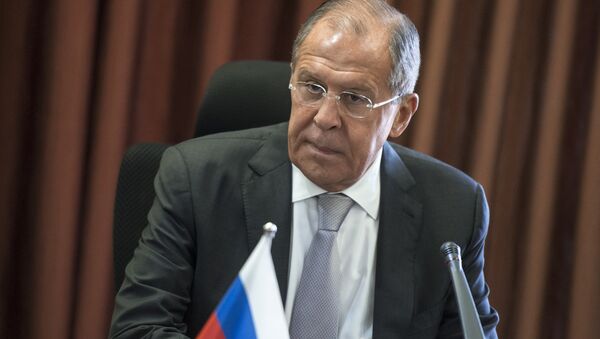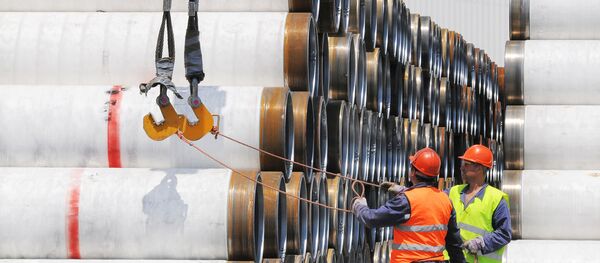October 10, Russia and Turkey signed an intergovernmental agreement, which envisions construction of two underwater legs of the gas pipeline in the Black Sea. The annual capacity of each leg is estimated to reach 15.75 billion cubic meters of natural gas. One of the legs will deliver gas directly to the Turkish market, while the other one will be used for gas transit through Turkish territory to European countries.
"For more than 20 years, Russia has been a reliable energy supplier, providing 60 percent of the [EU] gas needs and over 15 percent of the oil demand. Further prospects for increased cooperation are arising from the signing of the October 10 intergovernmental agreement on the Turkish Stream, which envisages the construction of one gas pipeline towards Greece… We hope that Brussels will be guided by pragmatic approach, not politicized reasons [in respect of Turkish Stream extension]," Lavrov said.
The Turkish Stream project was announced in the end of 2014 by Russian President Vladimir Putin on his state visit to Turkey. The pipeline is expected to run beneath the Black Sea from Russia to Turkey and continue to a hub on the Turkish-Greek border, from where the gas could be transferred to Southern Europe.
In November 2015, the project was suspended after a Russian Su-24 aircraft was downed by a Turkish F-16 fighter in Syria. Pipe-laying work for the Turkish Stream will begin in 2017 and end in late 2019.



